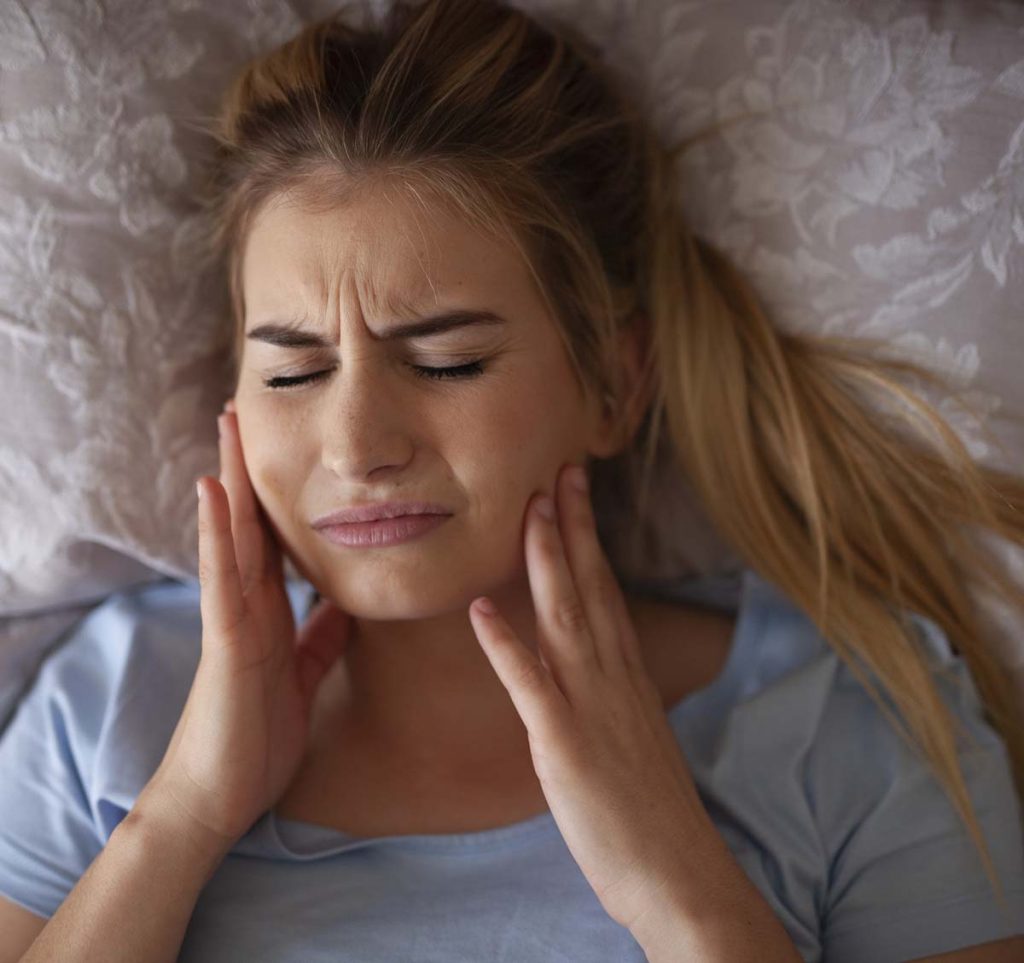Teeth grinding wears down the teeth and causes headaches and pain in the jaw, ears, and neck.
Did you know that about 30% of adults grind their teeth in one way or another, while 10% to 15% get painful bruxism during sleep? Teeth grinding is a seemingly benign dental condition that’s incredibly detrimental to the strength and structural integrity of your teeth.
Schedule an appointment to help alleviate symptoms of teeth grinding.

What Is Teeth Grinding?
As the name implies, teeth grinding (bruxism) describes a condition where people unknowingly clench and grind their teeth. Spread out cases of teeth grinding aren’t harmful to the teeth, but consistent teeth grinding is incredibly detrimental to your dental health. Fortunately, several techniques can help alleviate symptoms of teeth grinding and preserve your dental health.
Why Do We Grind Our Teeth?
There are plenty of reasons why some people grind their teeth. Some of these reasons include:
- Stress and Anxiety – Stress and anxiety are among the leading causes of tooth grinding in adults. Clenching and grinding are subconscious responses to stress and anxiety triggers. Some people grind their teeth in stressful situations or when angry and upset. The exact reason for the behavior puzzles dentists to this day.
- Sleep Disorders – Some people involuntarily grind their teeth at night while sleeping. However, sleep conditions like sleep apnea exacerbate this condition. This may be your body’s way of opening up channels for air to pass through while sleeping.
- Medical Conditions – Certain medical conditions are also known to cause teeth-grinding symptoms. Some of these conditions include Parkinson’s Disease, Huntington’s disease, and GERD. Addressing the said conditions may stop the teeth from grinding.
How Can I Tell Whether I Grind My Teeth?
It’s hard to tell whether you grind your teeth because teeth grinding happens involuntarily. However, look out for telltale symptoms of teeth grinding, like jaw soreness, unexplained headaches, jaw pain, and neck pain. If you suspect you grind your teeth, visit your dentist for a professional diagnosis and dental advice.
What Treatment Options Are Available for Bruxism?
Fortunately, teeth grinding is a treatable condition with many treatment options, including self-treatment. However, an occlusal splint or bite guard is the most effective treatment technique. This is a clear, removable, custom-made tray made to fit over your teeth to protect the teeth’s surfaces from coming in contact with each other, hence preventing bruxism.
Alternatively, you can try stress and anxiety relieving techniques to reduce anxiety and stress that causes bruxism. In the cases of medical conditions, treating the underlying conditions will address the teeth grinding permanently.
Contact Our Dental Office
Teeth grinding may seem harmless, but it can have far-reaching consequences on oral health and overall well-being. Individuals can take proactive steps to address the condition and protect their teeth by understanding the hidden dangers of bruxism. Regular dental check-ups, stress management, and adopting healthy habits play crucial roles in preventing and managing teeth grinding.
